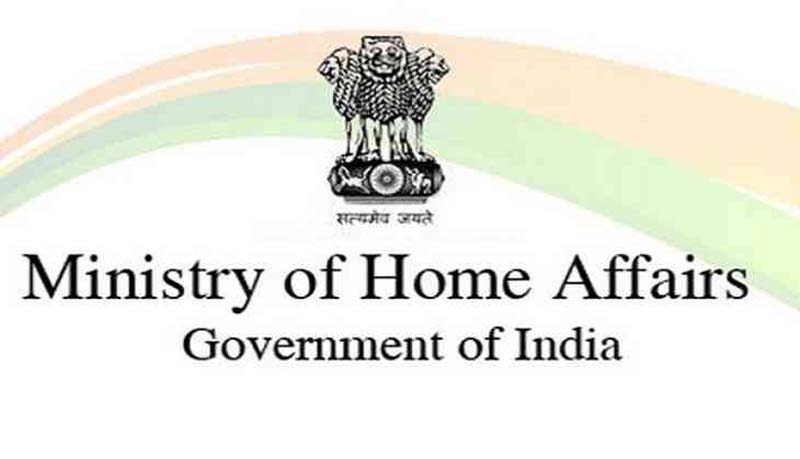Pharmacists’ issue resolved; Municipalities to have Ward Committees
Mohinder Verma
JAMMU, Oct 6: Union Ministry of Home Affairs (MHA) has issued orders for adaptation of 11 more Central Laws and 10 amended Acts of the erstwhile State in the Union Territory of Jammu and Kashmir with immediate effect. With this, the number of Central Laws having been adapted in the Union Territory has increased to 48 as 37 legislations were extended in the month of March this year.
Click here for full order
The adaptation of more Central Laws has been ordered by the Department of Jammu, Kashmir and Ladakh Affairs in the Ministry of Home Affairs in exercise of the powers conferred by Section 96 of the Jammu and Kashmir Reorganization Act, 2019.
As per the Union Territory of Jammu and Kashmir Reorganization (Adaptation of Central Laws) Second and Third Order, 2020 issued by Union Home Secretary, Ajay Kumar Bhalla, the General Clauses Act, 1897 applies for the interpretation of these orders as it applies for interpretation of laws in force in the territory of India.
The provisions of these orders shall not render invalid any notification, order, commitment, attachment, bye-law, rule or regulation duly made or issued or anything duly done before October 31, 2019, the Union Home Secretary has clarified in the orders.
“It is necessary to adapt the Central Laws made under the Concurrent List, with required modifications and amendments, for ensuring administrative effectiveness in the Union Territory of Jammu and Kashmir thereby removing any ambiguity in their application in line with the Constitution of India”, he said.
Besides 11 Central Laws, 10 laws which were framed by the erstwhile State have also been adapted after making necessary modifications as suggested to the Department of Jammu and Kashmir and Ladakh Affairs of the MHA by the Government of Union Territory.
The 11 Central Laws which have been adapted are the Pharmacy Act, 1948; the Banning of Unregulated Deposit Schemes Act, 2019; the Building and Other Construction Workers (Regulation of Employment and Conditions of Service) Act, 1996; the Contract Labour (Regulation and Abolition) Act, 1970; the Factories Act, 1948; the Industrial Disputes Act, 1947; the Industrial Employment (Standing Orders) Act, 1946; the Motor Transport Workers Act, 1961; the Sales Promotion Employees Act, 1976; the Street Vendors (Protection of Livelihood and Regulation of Street Vending) Act, 2014 and the Trade Unions Act, 1926.
As far as Pharmacy Act of 1948 is concerned, the MHA has created a special provision regarding persons registered under the Jammu and Kashmir Pharmacy Act, Samvat, 2011.
The new section in the Central Act states: “Notwithstanding anything contained in Section 32, any person whose name has been entered in the register of Pharmacists maintained under the J&K Pharmacy Act, 2011 and possesses qualification prescribed under the Act shall be deemed to have been entered in the register of Pharmacists prepared and maintained under Chapter IV of the Central Act subject to an application to be made in this behalf within a period of one year commencing from October 31, 2020 and payment of such fee as may be prescribed by the Government of Union Territory of Jammu and Kashmir”.
It is pertinent to mention here that majority of the Pharmacists were registered under the repealed Jammu and Kashmir Pharmacy Act on the basis of Matriculation and therefore don’t qualify for registration under the Central Pharmacy Act, 1948 wherein a degree or diploma in pharmacy or pharmaceutical chemistry or a chemist and druggist diploma is mandatory.
Now, the MHA on the request of J&K Government has inserted special provision as a result of which there is no threat to the livelihood of the Pharmacists.
As far as Central Laws relating to contract labour, factories, industrial disputes, industrial employment, motor transport workers and sales promotion employees are concerned, amendments have generally been carried out regarding compounding of offences.
The laws of erstwhile State which have been adapted in the Union Territory of Jammu and Kashmir after necessary amendments are J&K Municipal Act, 2000; J&K Municipal Corporation Act, 2000; the Jammu and Kashmir School Education Act, 2002; the J&K Board of School Education Act, 1976; the J&K Cooperative Societies Act, 1989; the J&K Self-Reliant Cooperatives Act, 1999; the Salaries and Allowances of Members of J&K State Legislature Act, 1960; the Salary and Allowances of Leaders of Opposition in the State Legislature Act, 1985; the J&K Goods and Services Act, 2017 and the J&K Metropolitan Region Development Authorities Act, 2018.
Under the amended J&K Municipal Act and J&K Municipal Corporation Act, there is a provision for constitution of Ward Committees for monitoring the functioning of schools, maternity centres, dispensaries and health centres wherever they are under the control of the Municipality. Moreover, Area Sabha will be constituted to formulate proposals and determine the priority of schemes and development programmes to be implemented in the respective areas.
The amendments in the J&K Board of School Education Act have been carried out to further streamline the functioning of Board. Moreover, under the amended Act, any institution in or outside the Union Territory may apply to the Board for being admitted to the privileges of the Board
In the GST Act, insertions have been made with regard to facility of digital payment to receipt, procedure for furnishing return and availing input tax credit, utilization of input tax credit subject to certain conditions, order of utilization of input tax credit and power of Government to extend time limit in special circumstances.


